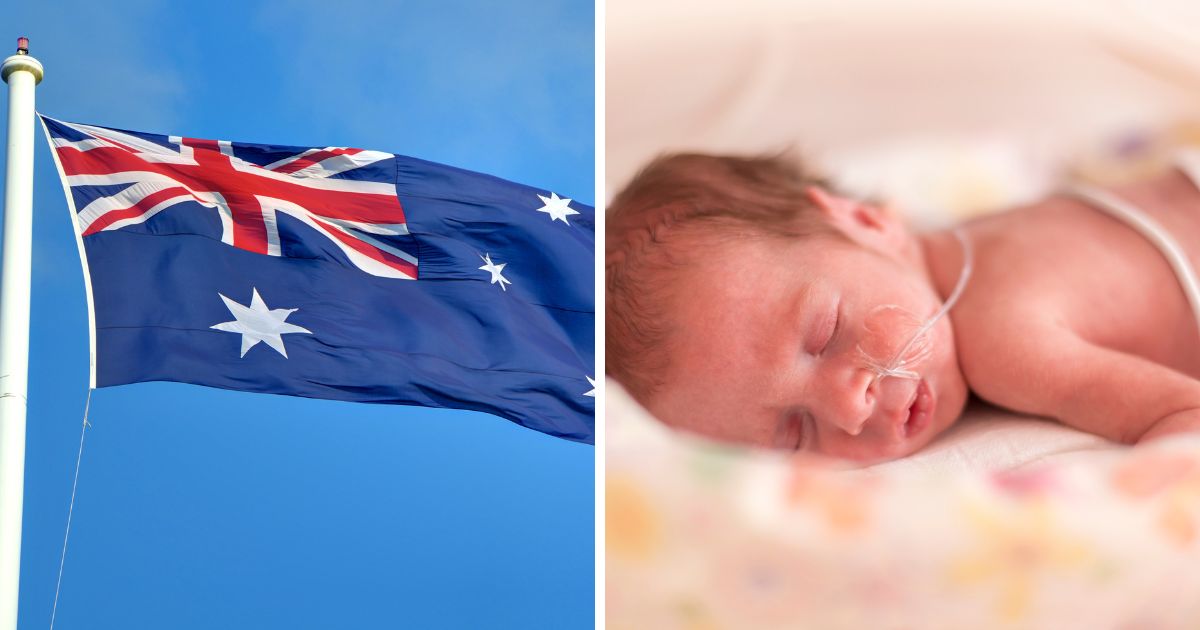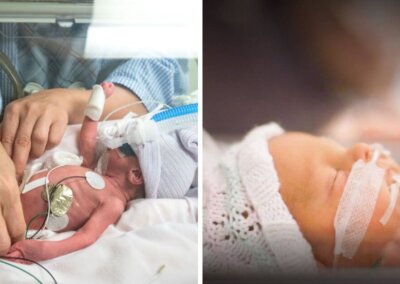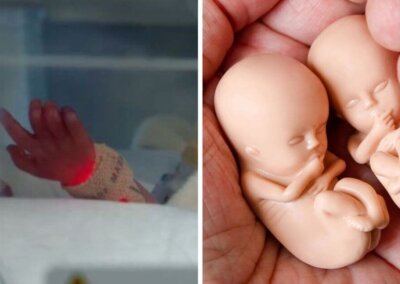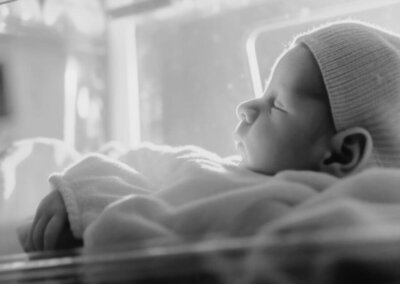A girl who was born 14 weeks early and weighing less than 1kg, is now a healthy and happy five-year-old, weighs 22kg and is about to start school.
Bridget de Beer was born via emergency caesarean section when her mum was just 26 weeks pregnant in 2018. She spent two months at Mater Mothers’ Hospital in South Brisbane, receiving constant lifesaving care in the Neonatal Critical Care Unit.
Bridget was born with a hole in her heart that self-corrected, and her mother, Jacalyn de Beer described her as a “determined little fighter”.
She added, “She is shy at first, but once she feels comfortable she is a bubbly, friendly and energetic little girl with lots to say!”.
Bridget’s two older brothers were also born prematurely
In 2015, twins Jonty and Cooper were born at 31 weeks gestation, also via emergency caesarean section. Jacalyn had been kept on bed rest in hospital from 19 weeks due to concerns about the safety of the babies. When the twins were born, they weighed less than 2kg each.
Jacalyn said “I saw my babies only for a few seconds before they were rushed to the Neonatal Critical Care Unit. It was such an emotional journey to go through before they were born but the nurses and medical staff at Mater Mothers were amazing and made it so much easier”.
The twins spent over 50 days in the hospital before returning home. Now eight years old, they attend the school that Bridget will also be starting.
Advances in medical technology led to a reduction in the abortion time limit in 1990
Baby Bridget was born before the 28-week abortion limit as originally set in England and Wales in 1967. The abortion limit was lowered in 1990 to 24 weeks gestation because, given our then medical and technological abilities, this was the gestational age at which an unborn baby was considered viable. Since then, however, medical technology has advanced considerably and the survival rates for unborn babies who are born before the 24-week abortion limit have improved dramatically, and babies born below 24 weeks gestation are increasingly able to survive.
A study in 2022 found almost four out of five babies born prematurely between 22 and 28 weeks gestation survive to discharge from the hospital. It found that from 2013 to 2018, with infants born between 22 and 28 weeks gestation, “survival to discharge occurred in 78.3% and was significantly improved compared with a historical rate of 76.0% among infants born in 2008-2012”.
Spokesperson for Right To Life UK, Catherine Robinson, said “It is wonderful to hear that Bridget is thriving as a five-year-old and about to start school. This inspirational family of fighters demonstrates the humanity of unborn babies at all stages of development”.












